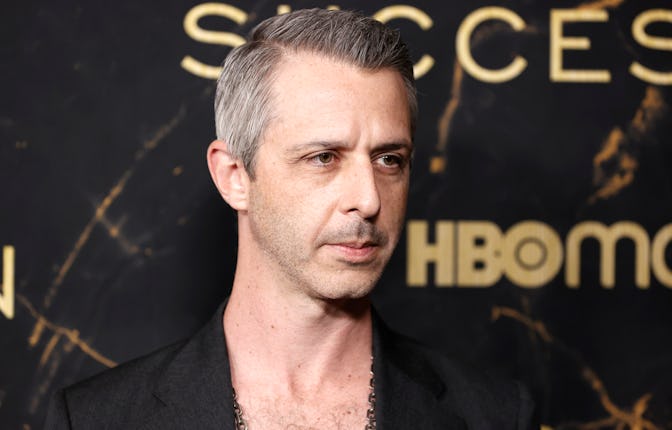Jeremy Strong is more Kendall Roy than his castmates would like
In a profile of the actor, Strong comes off as obsessive to the point of irritating even his own castmates

Jeremy Strong might be more Kendall Roy than even the cast of Succession would like. A new profile of the actor in The New Yorker focuses almost exclusively on the intense, sometimes questionable lengths Strong has gone to for roles in his career and as Kendall on the hit HBO show.
“To me, the stakes are life and death,” Strong explains early on about his breakout, Emmy Award-winning role. “I take him as seriously as I take my own life.” That attitude means, the profile’s writer Michael Schulman notes, Strong’s inability to legitimately see the darkly satirical show as a comedy.
“Kieran Culkin [who plays Roman Roy, Kendall’s younger brother] told me, ‘After the first season, he said something to me like, “I’m worried that people might think that the show is a comedy.” And I said, “I think the show is a comedy.” He thought I was kidding.’ Part of the appeal of Succession is its amalgam of drama and bone-dry satire. When I told Strong that I, too, thought of the show as a dark comedy, he looked at me with incomprehension and asked, ‘In the sense that, like, Chekhov is comedy?’”
This kind of self-seriousness seems to perpetually emanate from Strong, in the ways he prepares himself for roles and in how he conducts himself on-set — he often refuses to rehearse with the Succession cast — using what he says is not method acting, but “identity diffusion.” The jargon, though, might dress up an approach that at times seems to induce thinly veiled annoyance from his castmates, a dynamic that appropriately mirrors the relationship that the rebellious and unstable Kendall has in relation to the rest of the Roy family in the show. As stated by Schulman:
“Before I interviewed his castmates, Strong warned me, ‘I don’t know how popular the way I work is amongst our troupe.’ Since Kendall is the black sheep of a warring family, Strong’s self-alienation may be a way of creating tension onscreen. Though the cast is generally loose and collegial, Strong, during Season 2, began going to the makeup trailer only when no other actors were there — ‘which I remember making everyone else roll their eyes,’ a cast member told me.”
Culkin is more pointed in characterizing the effect of Strong's process. “Culkin said, of Strong’s self-isolation, ‘That might be something that helps him. I can tell you that it doesn’t help me.’” Brian Cox, who plays Kendall’s imperious father Logan, was more diplomatic and concerned about Strong, who literally injured himself during one take while leaping off of a platform, “thinking I could fly.” “It’s the cost to himself that worries me,” Cox says. “I just feel that he just has to be kinder to himself, and therefore has to be a bit kinder to everybody else.”
That intensity as Kendall has marked him throughout his career. At Yale, in aggressively luring one of his heroes, Al Pacino, to teach a masterclass at the school, he tallied up costs that “nearly bankrupted a hundred-year-old college-theatre company.” On the set of The Trial of the Chicago 7, he requested (and was denied) to be literally tear-gassed for a scene, and, as his character’s antagonist in the film, also terrorized Frank Langella with a farting machine. On the set of The Judge, a film that he stars in alongside Robert Downey Jr., “he asked for personalized props that weren’t in the script, including a family photo album. ‘It was almost swatting him away like he was an annoying gnat—I had bigger things to deal with,’ a member of the design team recalled.”
The obsession, though, has a tinge of tragedy to it: the profile reads as someone who is so immersed not only in individual roles, but in the overall reality of the profession of acting, that he has in some ways lost himself. “I began to wonder if I’d been interviewing an actor playing Kendall Roy or a character impersonating Jeremy Strong,” Schulman writes at one point.”
When he has finished shooting the third season, which is airing now, the profile briefly follows Strong as he goes on vacation with his wife and children and appears to have a weight lifted, finally separated from his character. But it’s only a partial respite, as he also seems to ponder if he’s ever entirely severed from his roles: “He brought up the espionage term ‘the legend,’ the fake biography that a spy memorizes before assuming a phony identity. ‘You have to commit to your legend,’ he said, of acting. ‘At the time, I’m not sure which one is more real. Am I committing to the legend at home, where I’m the father and the husband, or the legend at work?’”